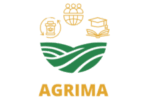In the context of sustainability and circular economy, waste valorization is often assumed to be inherently beneficial. However, not all processes that incorporate waste materials are necessarily more environmentally friendly, and what seems sustainable at first glance may not be when examined through a full life cycle perspective. Life Cycle Assessment (LCA) is a scientific methodology that allows for the quantification of environmental impacts across all stages of a product’s or process’s life cycle, from raw material extraction to end-of-life. As such, LCA provides a powerful framework for informed decision-making, particularly when comparing alternative scenarios, and plays a crucial role in the sustainable design of products and processes. This presentation aims to provide a brief introduction to LCA methodology and its relevance, especially in the case of waste valorization processes. To illustrate its practical application, a case study will be presented on the production of biochar from agrifood waste and its use in wastewater treatment. Although the life cycle inventory is still under development, this example can provide preliminary insights into the potential environmental trade-offs involved in transforming agro-industrial residues into value-added products. Ultimately, this work highlights the importance of incorporating LCA in the early stages of research and reinforces the message that sustainability is not just a feeling, but a calculation.
Adriana Alves; REQUIMTE/LAQV, Instituto Superior de Engenharia do Porto, Instituto Politécnico do Porto, Porto, Portugal
